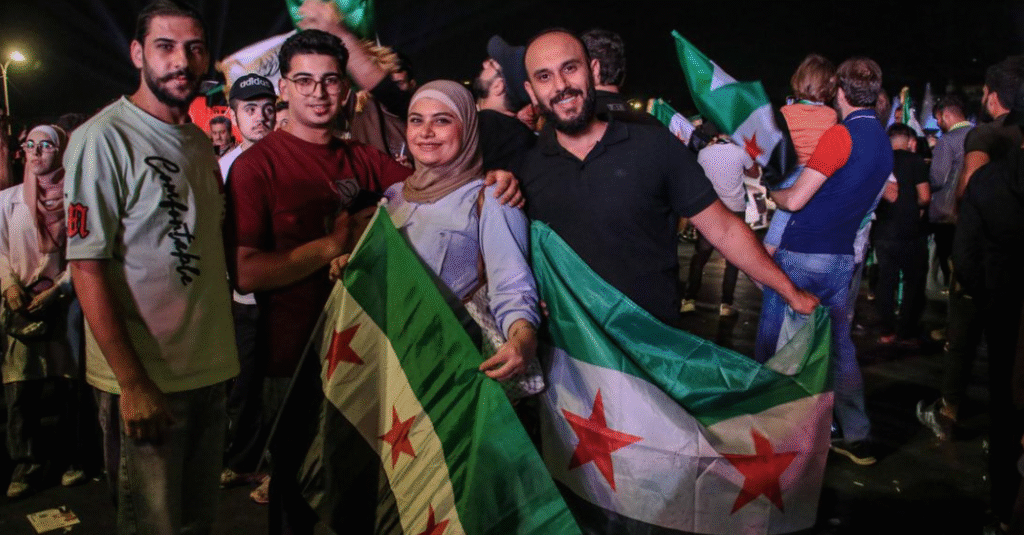Ahmad al-Sharaa faces a stacked agenda at home. Syria’s economy has collapsed: the Syrian pound lost much value, essentials like electricity, water, and healthcare lag across many provinces. Many Syrians endure power cuts, shortages of medicine, and rising prices. On top of that, sectarian and ethnic violence persists, especially in Alawite, Christian, Druze, and Kurdish areas.
Al-Sharaa’s International Push Sanctions Removal
While domestic problems rage, al-Sharaa devotes energy to winning diplomatic legitimacy internationally. In New York at the U.N. General Assembly, he insisted that U.S. sanctions, especially the Caesar Act, should formally end. He argues these sanctions punish ordinary Syrians more than the former regime, and no longer reflect current realities.
He meets with foreign leaders, signals willingness to engage with Israel on security agreements, and positions Syria as ready for reintegration into regional and global politics. These moves appeal abroad, but some critics argue they serve optics more than substance.
Tension Between Diplomacy and Domestic Expectations
Many Syrians say they want better sanitation, reliable infrastructure, education for their children, and safety in their neighborhoods more than grand diplomatic gestures. Al-Sharaa’s focus on outside relations raises doubts among ordinary citizens: if the new government spends time negotiating with foreign powers but delays restoring hospitals or repairing roads, trust erodes.

Al-Sharaa faces one of his hardest challenges: controlling or integrating armed factions. Several groups fought to overthrow Assad, including Hayat Tahrir al-Sham . Al-Sharaa dissolved the old regime’s army and security services, but many former rebels, foreign fighters, and militias remain active, sometimes with loose command ties. He formed a small core force estimates say tens of thousands, but that force remains stretched.
Social Contract Crisis Trust, Transparency, and Governance Reforms
Civic groups, minority communities, and civil society demand more than speeches. They ask for constitutional reforms, mechanisms for accountability, transparency in government spending, protections for minorities, and inclusive policies for representation.
Activists warn that al-Sharaa’s process of transition lacks clear legal and institutional frameworks. Many believe that failure to deliver tangible changes especially in law, justice, and social welfare will deepen disillusionment.

